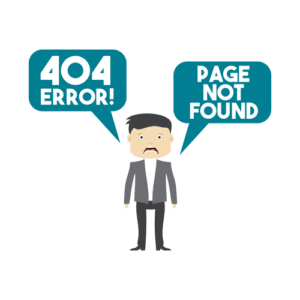
Platforms like Shopify, WooCommerce, and BigCommerce provide built-in sales tax compliance solutions that can help you manage sales tax payments. Drop shipping can be a smart option for small sellers, but it can also add new layers of sales tax complexity. One way for small businesses to make the most out of drop shipping and other innovative solutions is to use Avalara sales tax automation software and exemption certificate Partnership Accounting management tools. In the context of drop shipping, ensuring compliance and documentation is vital. Resale certificates play a crucial role in managing your tax liability.
Do I need GST registration for dropshipping?

But not all suppliers accept resale certificates, because they want to discourage resellers from buying their stock! This blog explores essential bookkeeping practices tailored for e-commerce businesses. It covers strategies for managing finances, ensuring tax compliance, tracking inventory, and handling multi-currency transactions. Readers will learn how to leverage accounting software, navigate sales tax regulations, and analyze financial reports to optimize operations and drive growth.
Sales Tax Exemption Certificates: How do they work?

As with resale certificates, it is crucial to be aware of each state’s specific rules and regulations pertaining to exemption certificates. Proper documentation and filing of these certificates ensures that you remain in compliance with the different state requirements. Once you have figured out who collects sales tax, you still have to abide by state rules on how much sales tax to collect. Depending on if the state is origin-based or destination-based, you are required retained earnings to collect sales tax based on your location or that of the buyer. On the bright side, this is the one aspect of drop shipping that most e-commerce sellers are accustomed to dealing with. In the event that the supplier has nexus in the same state as the retailer — the supplier’s customer — they’ll need to collect sales tax from the retailer.
What are Dropshipping Taxes?

Seeking professional advice can further ensure you’re meeting all legal obligations. Implementing these technology solutions can help e-commerce businesses involved in drop shipping effectively navigate the challenges of sales tax compliance. Integrating tax automation tools like Avalara or TaxJar and managing exemption certificates will contribute to a streamlined and accurate sales tax process. Another crucial aspect of managing sales tax compliance in drop shipping is handling resale and exemption certificates. Properly tracking and validating these certificates ensure that businesses avoid charging sales tax on transactions that qualify for exemptions. For retailers and suppliers using Shopify, the platform offers a useful jumping-off point for sales tax management.
- Having economic nexus means you’ve sold enough products in a state for them to see you have a strong economic presence.
- The transaction between the seller and the customer is a retail transaction and taxed according to the nature of the goods purchased or the type of customer.
- The best way to manage dropshipping taxes in Shopify is to use an all-in-one tax plugin.
- You don’t actually own the inventory, so you place an order with your dropshipper for your customer’s product.
- But if Adam sells that synth to a buyer in Kenner, Louisiana, Adam isn’t required to collect sales tax because he doesn’t have sales tax nexus in Louisiana.
There are a number of ways to do so, but the two most popular are having a physical presence in the state (physical nexus) or engaging in economic activities there (economic nexus). Some states consider an in-state supplier to qualify as a nexus for that sale. California, New York, Texas, and Florida have particular clauses about this scenario. The first thing companies should look for is Streamlined Sales and Use Tax Agreement member states. If you’ve ever done this in the past, or were thinking about pulling off this type of who pays sales tax on drop shipments transaction, this is called a drop shipment. While it’s definitely not the most common way of conducting an eCommerce business, drop shipping can be part of a very lucrative business model.
- Resale certificates play a crucial role in managing your tax liability.
- You’ve now been in business for a while and you have enough sales in Utah that you have passed the economic threshold ($100K in gross sales OR 200 transactions).
- For online merchants, drop shipping can be a real savior, especially for tiny firms who lack the resources or capacity to maintain inventory on hand.
- However, states have different standards of what documentation they accept.
- States with non-collecting seller use tax reporting requirements include Colorado, Oklahoma, and Vermont.
